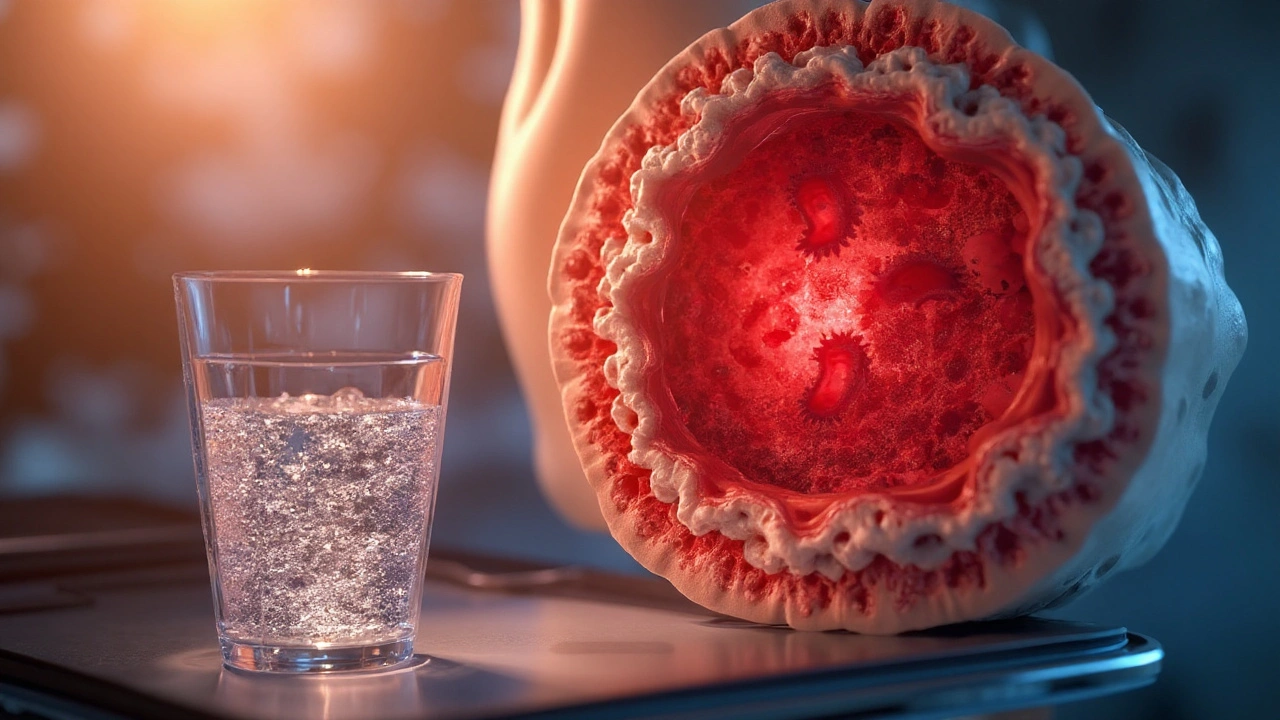Dehydration: What It Is, How to Spot It, and How to Fix It Fast
Ever feel light‑headed, have a dry mouth, or notice dark urine? Those are classic signs your body is low on water. Dehydration happens when you lose more fluid than you take in, and it can sneak up on anyone—from athletes to office workers.
Why You Lose Fluids
Most of the time it’s simple: you sweat, you pee, you breathe out water vapor. Hot weather, intense workouts, or fever can boost those losses. Certain meds, especially diuretics like furosemide, push extra fluid out of your kidneys, making dehydration a real risk. Even everyday caffeine or alcohol can add up if you don’t replace the liquid.
Other hidden culprits are illnesses that cause vomiting or diarrhea, and medical conditions that affect hormone balance. If you’re on a low‑salt diet or have diabetes, your body might pull water out of cells faster than usual.
Spotting the Warning Signs
Don’t wait until you feel dizzy. Early symptoms include:
- Dry lips or tongue
- Thirst that won’t go away
- Headache or slight confusion
- Reduced urine output (dark yellow is a red flag)
- Skin that feels less elastic when you pinch it
Severe dehydration can cause fast heart rate, low blood pressure, or even fainting. In those cases, seek medical help fast – you may need IV fluids.
Quick Ways to Rehydrate
The fastest fix is water, but adding electrolytes helps your body hold onto it. Try a sports drink, coconut water, or a homemade solution (½ tsp salt + 6 tsp sugar dissolved in 1 liter of water). For mild cases, sipping small amounts every few minutes works better than gulping a big glass.
If you’re an athlete, aim to drink 0.5 L of fluid for every pound of sweat lost. For everyday life, keep a bottle at your desk and take a sip every time you check your phone. Little habits add up.
Our guide on Furosemide vs Other Diuretics explains how loop diuretics affect water balance, while the Electrolyte Tips article breaks down which minerals you need during a hot day.
When to See a Doctor
If you can’t keep fluids down, have persistent vomiting, or notice confusion that doesn’t improve, call a health professional. Babies, the elderly, and people with kidney disease are especially vulnerable and should get checked early.
Bottom line: listen to your body, replace lost fluids with a mix of water and electrolytes, and watch the signs. Staying hydrated is one of the easiest ways to keep your energy up and avoid health hiccups.


